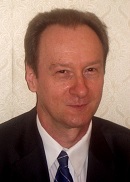
Plenary Lecture
Improvements of the Fireworks Algorithm

Professor Milan Tuba
John Naisbitt University
Graduate School of Computer Science
Serbia
E-mail: tuba@ieee.org
Abstract: A class of hard optimization problems, with many practical applications, cannot be solved by classical deterministic mathematical methods because of enormous number of local optima. Such problems have recently been successfully solved by nature inspired metaheuristic algorithms. Swarm intelligence is an important branch of nature inspired algorithms where behavior of swarms (groups of individuals) of different species like ants, bees, cuckoos, fireflies, bats, fish, birds, krill etc. is used as an inspiration for stochastic search. All swarm intelligence optimization metaheuristics start with a collection of random points in the space of potential solutions and then search for better solutions keeping balance between exploitation and exploration. Exploitation utilizes already found good solutions to improve convergence speed, while exploration moves to new areas to avoid being trapped in local optima. Fireworks algorithm (FWA) is a recent swarm intelligence algorithm proposed in 2010 by Tan and Zhu. It was inspired by fireworks explosions and in order to define a metaheuristic algorithm two different types of the fireworks explosion were used. Well manufactured fireworks represent exploitation where numerous sparks centralized around explosion center are generated. Badly manufactured fireworks produce only a few sparks scattered in the space and represent exploration. Since the initial version of the fireworks algorithm was proposed, it has been continuously improved and during last several years few upgraded versions were presented by the authors. The first modification named enhanced fireworks algorithm was proposed in 2013 where five modifications of the initial fireworks algorithm were introduced. The next improvement named dynamic search fireworks algorithm with covariance mutation was proposed in 2014. In 2015 two new versions were proposed, fireworks algorithm with covariance mutation and cooperative fireworks algorithm. The latest version proposed by Li, Zheng and Tan in 2016 is named guided fireworks algorithm. This plenary lecture will present evolution of the fireworks algorithm, differences between its versions, benchmark functions testing results and successful applications of the fireworks algorithm to various practical problems.
Brief Biography of the Speaker: Milan Tuba is the Dean of Graduate School of Computer Science and Provost for mathematical and technical sciences at John Naisbitt University of Belgrade. He received B. S. in Mathematics, M. S. in Mathematics, M. S. in Computer Science, M. Ph. in Computer Science, Ph. D. in Computer Science from University of Belgrade and New York University. From 1983 to 1994 he was in the U.S.A. first as a graduate student and teaching and research assistant at Vanderbilt University in Nashville and Courant Institute of Mathematical Sciences, New York University and later as Assistant Professor of Electrical Engineering at Cooper Union School of Engineering, New York. During that time he was the founder and director of Microprocessor Lab and VLSI Lab, leader of scientific projects and theses supervisor. From 1994 he was Assistant Professor of Computer Science and Director of Computer Center at University of Belgrade, from 2001 Associate Professor, Faculty of Mathematics, University of Belgrade, and from 2004 also a Professor of Computer Science and Dean of the College of Computer Science, Megatrend University Belgrade. He was teaching more than 20 graduate and undergraduate courses, from VLSI Design and Computer Architecture to Computer Networks, Operating Systems, Image Processing, Calculus and Queuing Theory. His research interest includes heuristic optimizations applied to computer networks, image processing and combinatorial problems. Prof. Tuba is the author or coauthor of more than 150 scientific papers and coeditor or member of the editorial board or scientific committee of number of scientific journals and conferences. Member of the ACM, IEEE, AMS, SIAM, IFNA.